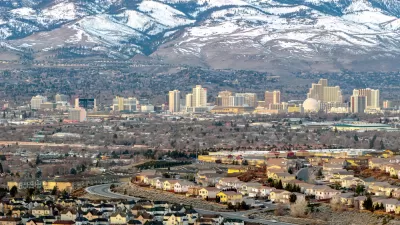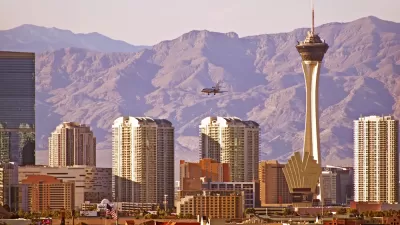Seen as a source of economic development and easy money for cities (struggling or not) throughout North America, casino projects are neither a revenue panacea nor the win-win "economic bullet" that supporters claim, argues Richard Florida.
As New York State looks to join the ranks of those legalizing "full-scale" gambling, Florida makes the argument against the "powerful allure" of "big ground-breakings; new jobs in construction, hospitality and gaming tables; and substantial new sources of public revenue."
"While politicians and casino magnates seek to sell gambling complexes to the public as magic economic bullets," says Florida, "virtually every independent economic development expert disagrees — and they have the studies to back it up."
"In his 2004 book 'Gambling in America: Costs and Benefits,' Baylor University economist Earl Grinols totaled the added costs that cities must pay in increased crime, bankruptcies, lost productivity and diminished social capital once they introduce casinos to their economic mix. He found that casino gambling generates roughly $166 in social costs for every $54 of economic benefit. Based on this, he estimates that the 'costs of problem and pathological gambling are comparable to the value of the lost output of an additional recession in the economy every four years.'”
While the three cities - Reno, Las Vegas, and Atlantic City - that only three decades ago had a monopoly on casinos have learned not to rely on unstable gambling revenues, and seek to diversify their economies, places like Detroit, Cleveland, Chicago, Boston, and Toronto are looking to get into the gambling game. Florida suggests officials in these cities think twice before they roll the dice.
FULL STORY: Gambling away our cities

Alabama: Trump Terminates Settlements for Black Communities Harmed By Raw Sewage
Trump deemed the landmark civil rights agreement “illegal DEI and environmental justice policy.”

Study: Maui’s Plan to Convert Vacation Rentals to Long-Term Housing Could Cause Nearly $1 Billion Economic Loss
The plan would reduce visitor accommodation by 25% resulting in 1,900 jobs lost.

Why Should We Subsidize Public Transportation?
Many public transit agencies face financial stress due to rising costs, declining fare revenue, and declining subsidies. Transit advocates must provide a strong business case for increasing public transit funding.

Paris Bike Boom Leads to Steep Drop in Air Pollution
The French city’s air quality has improved dramatically in the past 20 years, coinciding with a growth in cycling.

Why Housing Costs More to Build in California Than in Texas
Hard costs like labor and materials combined with ‘soft’ costs such as permitting make building in the San Francisco Bay Area almost three times as costly as in Texas cities.

San Diego County Sees a Rise in Urban Coyotes
San Diego County experiences a rise in urban coyotes, as sightings become prevalent throughout its urban neighbourhoods and surrounding areas.
Urban Design for Planners 1: Software Tools
This six-course series explores essential urban design concepts using open source software and equips planners with the tools they need to participate fully in the urban design process.
Planning for Universal Design
Learn the tools for implementing Universal Design in planning regulations.
Smith Gee Studio
Alamo Area Metropolitan Planning Organization
City of Santa Clarita
Institute for Housing and Urban Development Studies (IHS)
City of Grandview
Harvard GSD Executive Education
Toledo-Lucas County Plan Commissions
Salt Lake City
NYU Wagner Graduate School of Public Service




























